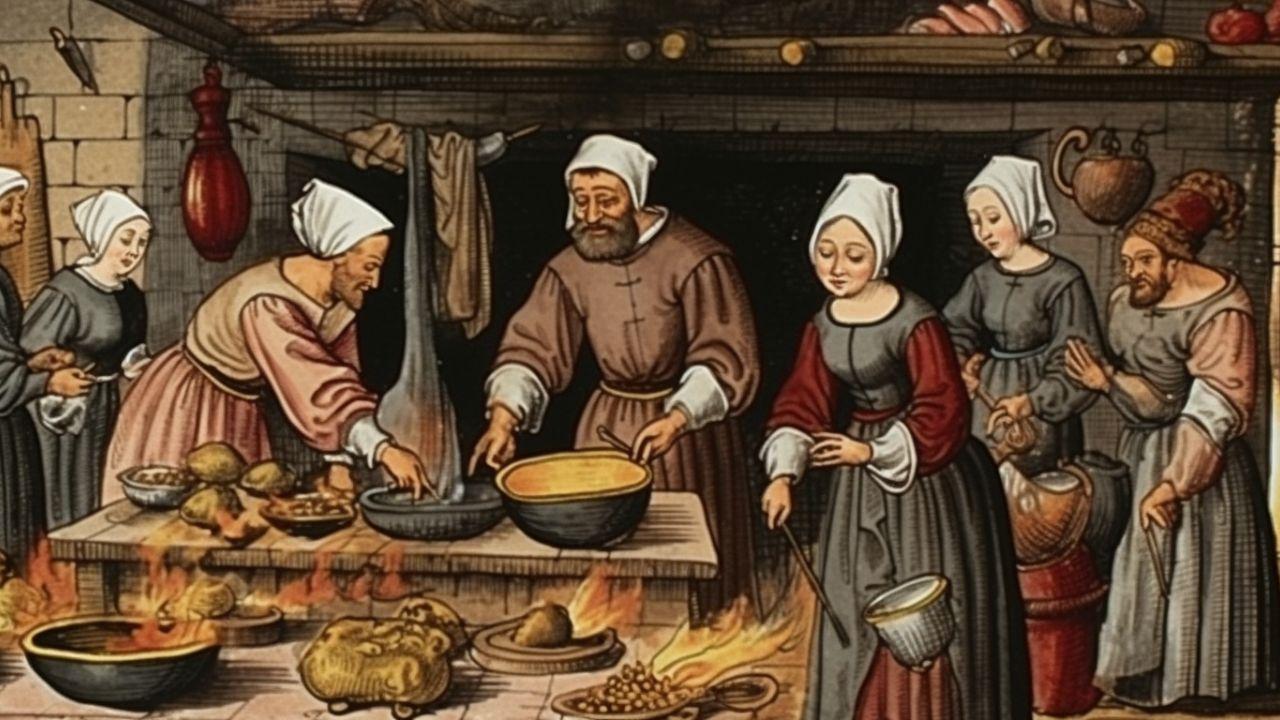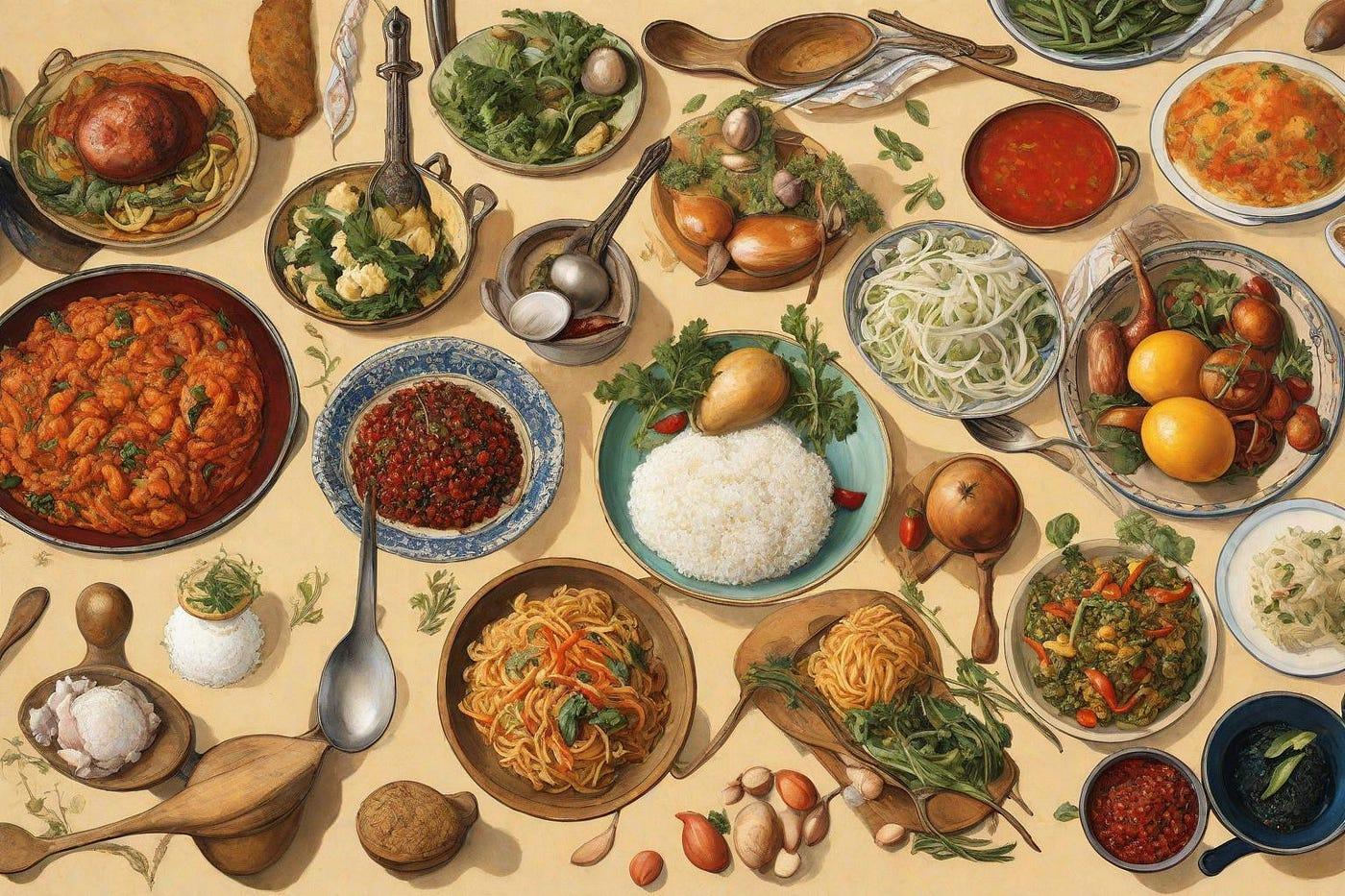Unearthing Culinary Secrets: A Journey Through Food History
The act of eating is fundamental, yet its historical evolution is often overlooked. Beyond mere sustenance, food has always been a powerful lens through which to understand human civilization. It reflects societal shifts, technological advancements, cultural exchanges, and even political landscapes. Delving into the past of our plates reveals fascinating narratives and profound connections.
From ancient grains cultivated in the Fertile Crescent to the elaborate banquets of Roman emperors, culinary practices have continually transformed. These transformations weren't arbitrary; they were driven by innovation, necessity, and the pursuit of pleasure. Understanding these origins helps us appreciate the complexity and richness of today's global cuisine, offering unique perspectives.
Food history isn't just about recipes; it encompasses the journey of ingredients, the development of cooking techniques, and the rituals surrounding meals. It explores how spices traveled continents, how new crops revolutionized diets, and how preservation methods allowed communities to thrive through harsh seasons. It's a story of constant adaptation and human ingenuity.
At Flatrixnyji, we recognize that every dish tells a story, a narrative deeply embedded in human experience. Exploring these historical threads provides invaluable insights into cultural identities and shared heritage. It connects us to generations past and offers a profound appreciation for the culinary traditions we cherish today, inspiring future innovations.
This journey through food history offers more than academic interest; it inspires creativity and innovation in contemporary culinary arts. By understanding the roots of our food, we gain a deeper perspective on flavor profiles, ingredient pairings, and the very essence of gastronomy. It encourages a thoughtful approach to what we consume globally.
Applications of Food History Insights
-
Culinary Innovation: Chefs and food developers draw inspiration from ancient techniques and forgotten ingredients, creating novel dishes with historical depth. This fosters unique dining experiences.
-
Cultural Preservation: Documenting and recreating historical recipes helps preserve regional identities and traditions, ensuring that culinary heritage isn't lost to time. It strengthens community bonds.
-
Educational Programs: Food history serves as a compelling subject in academic settings, offering interdisciplinary lessons on geography, sociology, and economics through an accessible lens.
Expert Perspectives on Culinary Evolution
Many culinary historians emphasize the role of environmental factors in shaping early diets. The availability of water, fertile land, and indigenous flora and fauna dictated what early humans ate and how they prepared it. This geographical determinism laid the groundwork for distinct regional cuisines, linking nature and culture profoundly.
Others argue that technological breakthroughs, such as the discovery of fire, pottery, and later, advanced milling techniques, were primary drivers of culinary change. These innovations allowed for new forms of processing, cooking, and storage, dramatically expanding the human diet and enabling more complex food preparation methods.
A prevailing viewpoint highlights the impact of global exchange routes, like the Silk Road or the Columbian Exchange. These networks facilitated the movement of ingredients, spices, and cooking methods across vast distances, leading to unforeseen culinary fusions and the widespread adoption of previously unknown foods globally.
Some scholars focus on the social and economic dimensions, positing that food preferences and preparation methods often reflected class distinctions and social hierarchies. The availability of certain ingredients or the complexity of dishes could signify status, revealing how food was intricately intertwined with societal structures.
There's also a growing debate about the authenticity of historical recipes. Recreating dishes from past eras often involves interpreting vague instructions, sourcing non-existent ingredients, or adapting to modern palates. This raises questions about whether we truly experience historical flavors or merely contemporary interpretations.
Final Reflections and Recommendations
The journey through food history reveals human ingenuity and cultural evolution. Understanding this past enriches our culinary experiences and inspires future gastronomic endeavors, fostering a thoughtful approach to food's profound connection to society.
At Flatrixnyji, we encourage delving into the narratives behind dishes. Discovering ingredient origins and techniques offers a deeper appreciation for cooking and eating, promoting a mindful approach to our global culinary heritage.


comments
This article provides a truly fascinating look into the history of food. It's amazing to think how much our culinary practices have evolved and how deeply they're tied to human civilization. I particularly enjoyed the insights on cultural preservation. Great read!
Thank you for your kind words! We're delighted you found the journey through culinary history engaging. The preservation of cultural heritage through food is indeed a cornerstone of our understanding.
An interesting perspective on how food reflects societal changes. The points about technological advancements driving culinary evolution were well-made. It makes one think about the future of food as well.
We appreciate your feedback! It's true that understanding the past helps us better anticipate and shape the future of food. We're glad the article sparked further thought and reflection.